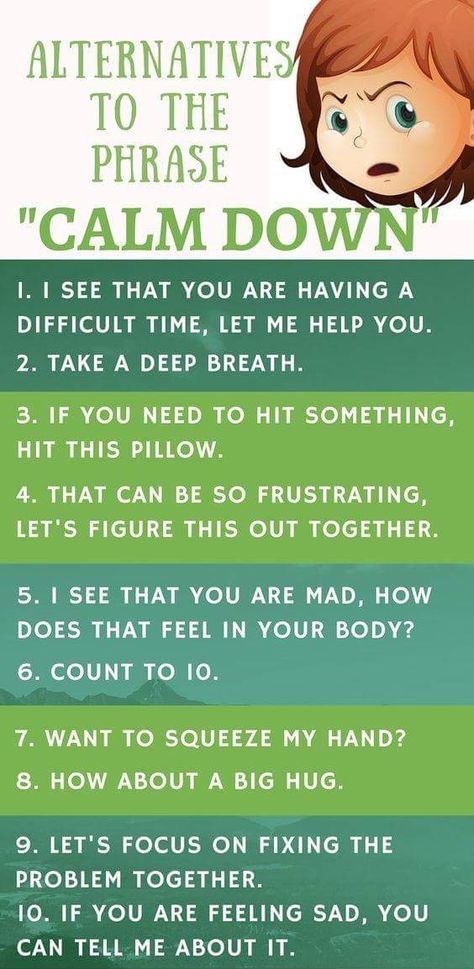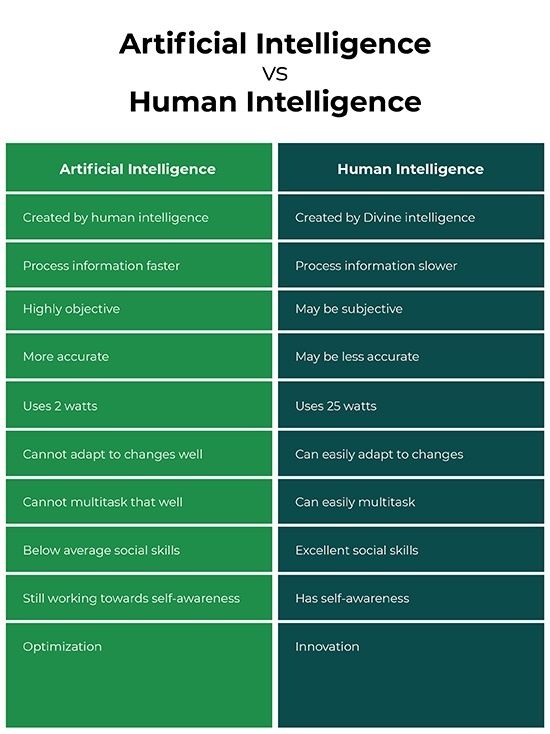Why is my child so difficult
The Best Mindset for Parenting a Strong-Willed, Highly Emotional Child
23419 shares
Inside: Learn two vitally important things that will change your child’s life for when it feels difficult parenting a strong-willed child or an emotionally intense child.
Table of Contents
I will never forget the bumpy wagon ride through that strawberry field three years ago. It was a bright summer day. and my two girls and I had finished filling our baskets with fresh strawberries, but the wagon that would take us back to the country store was nowhere to be seen.
Oh crap, we have to wait.
Waiting can be a terrifying thing for some parents you know.
Those parenting a strong-willed child or a very active emotionally intense child- you know what I’m talking about.
Before I could finish my thought my 3-year-old was off invading the forbidden territory of an adjacent strawberry row, seeking out the biggest and deepest mud puddles she could sink her boots into.
After containing her for a hot minute, I turned around to see my 5-year old’s front completely stained red, head to toe. She had decided to forgo the whole ‘purchase before you consume while strawberry picking’, rule.
Internal panic rising, I desperately scanned the strawberry fields for the wagon trying to ignore the judgemental looks and stares (and some laughs) around me, while an oh-so-familiar thought surfaced.
Why does this always feel so difficult?
Some kids are much easier to raise
Two years later we would see what life was like on the other side, you know the non-insane side. We welcomed a little boy into the world, and still refer to our 3-day maternity stay as the most relaxing vacation ever. Things just came easier for this child, sleeping, eating and flowing easily with the ways of the world.
FREE MASTERGUIDE for parents of strong-willed kids >> Less conflict. More cooperation. Click here to access.
This little 3 year old now reminds me before we get to the street that we need to hold hands to stay safe. He is like an eighty-year-old man in a body of a pre-schooler.
He literally does almost everything asked of him, and if he does put up resistance, one calm verbal affirmation is all he needs to get back in the game. It still dumbfounds my husband and I every. single. day.
Moving through the world of childhood is just easier for him.
Parenting a strong-willed child or intense child
Ever since our middle child took up residence in my uterus she has not stopped moving or making noise. Try to imagine for just a second what that might be like for a parent.
Well, I’ll tell ya, it’s freaking exhausting.
This child has run toward more busy streets before her second birthday than an aspiring Nascar driver.
This child challenged the metaphorical nature of the saying “hanging from the chandeliers” at 18 months old (yes, she actually hung from a chandelier over a pub style table).
This child goes for it. This child is curious, smart and energetic. This child ate her one-year-old birthday cake like a badass (can that really be an actual sentence?). Raising this awesome kid exhausts us.
Related>> The Quickest Way to Help An Angry Child
Dr. Perri Glass summed up this dynamic brilliantly in his New York Times article,
“Every child is a different assignment — and we can all pay lip service to that cheerfully enough. But the hard thing to believe is how different the assignments can be. Within the range of developmentally normal children, some parents have a much, much harder job than others: more drudge work, less gratification, more public shaming. It sometimes feels like the great undiscussed secret of pediatrics — and of parenting.”
So why are some kids are harder to raise?
Of course, there is a multitude of reasons children are the way they are, but let’s focus on 3 primary reasons for the purposes of this article.
1.Temperament.
We’ve all heard about this thing called temperament, right? About how a good chunk of our child’s personality and character traits are fixed right from the get-go? How characteristics like activity level, adaptability and intensity are set in stone before ‘bad parenting’ has a chance to factor in?
Some kids came into the world having to work much harder at ordinary everyday things like transitioning from the park to the car. When raising a strong-willed child, things start to make a lot more sense when we learn about the intricacies of temperament.
2.Developmental differences.
The path of development for a child is often not linear, and some children experience this to a far greater degree. There are 5 main areas in which children can temporarily be delayed, and while cognitive skills, social and emotional skills, and fine/ gross motor abilities are not easily observable to a passerby, they drastically impact many facets of a child’s day to day life.
A primary example of this is the development of a child’s executive functioning skills. Executive functioning is an umbrella term for the neurologically-based skills of mental control and self-regulation. If we want to generalize, it’s basically all the skills a child needs in order to act somewhat civilized.
Current statistics show that nearly 1 in 10 children show delays in executive functioning during the school-age years, but what does this mean for how a child fares in the world?
It means that they’ll struggle to consistantly organize their thoughts and behavior, becoming more easily emotionally overwhelmed and struggle to comply with the everyday demands of home and school.
Related Read>> The Strong-Willed Child: 8 Do’s and Don’ts for Parents to Live By
3.Mental health variables.
Can we all just come out and say that most of us have some mental health challenge throughout our lives? If we don’t want to admit it, the statistics will. Some children are born with a predisposition toward symptoms of anxiety or unstable moods, all of which exist on a spectrum, affecting one child in a different way than the next.
Some children are born with a predisposition toward symptoms of anxiety or unstable moods, all of which exist on a spectrum, affecting one child in a different way than the next.
A child with even minor anxiety is going to have a harder time focusing, regulating their emotions and transitioning through the day to day tasks of childhood.
PIN for later!
The power of perspective in parenting a strong-willed child or emotionally intense childI had a life-changing moment during our wagon ride home from the strawberry patch that day. It came as I sat and watched another mom with her two kids, sitting, sitting perfectly still on that wagon for at least 5 minutes, and you know what else? They didn’t talk at all either.
They weren’t looking around, they weren’t trying to climb up to the middle section of the wagon that was off-limits. They were not trying to drag a stick down in the mud, nor were they power-slamming strawberries prior to payment.
We were living in two different worlds.
As I glanced back at my two-year-old who was trying to climb into the middle and eat every strawberry on the wagon, it hit me. This is not about me. This was not about my parenting, my self-pity or my jealousy toward other parents of who I assumed had easier kids. This is not about my expectations of what I thought parenting would look like. This was about raising a child.
It was about allowing my unique kid to have her own story of who she is in this world. I realized then and there that if I didn’t learn to accept and appreciate my children’s intensity and strong-willed child characteristics, who would?
Related>> 10 Secrets to Effective Discipline with the Strong-Willed Child
I vowed to do two things going forward.
The first was that I would try my best to remember and appreciate that the world needs all kinds of people (and by the way kids are people too). I am honestly so excited to see the mountains my two strong-willed girls will move in their lifetime.
I am honestly so excited to see the mountains my two strong-willed girls will move in their lifetime.
With their unending energy, inability to hear the word no, and boundless determination they have the capacity to create change where perhaps there wouldn’t have been any.
I also can’t wait to see the amazing gifts my easy-going son will deliver into the world. Not through determination and force but through patience, gentleness and his strong peaceful energy.
Many would say a third child would bring more stress, and yet, he has been a calming and stabilizing force on our family since the very day he was born.
The second was that I would help each of my children, as different as they are, grow into the best versions of themselves. I would continue learning about their strengths and weakness, in an attempt to nurture and support my child’s strengths. It’s also important that I reflect their strengths back to them, helping them to better know themselves in the process.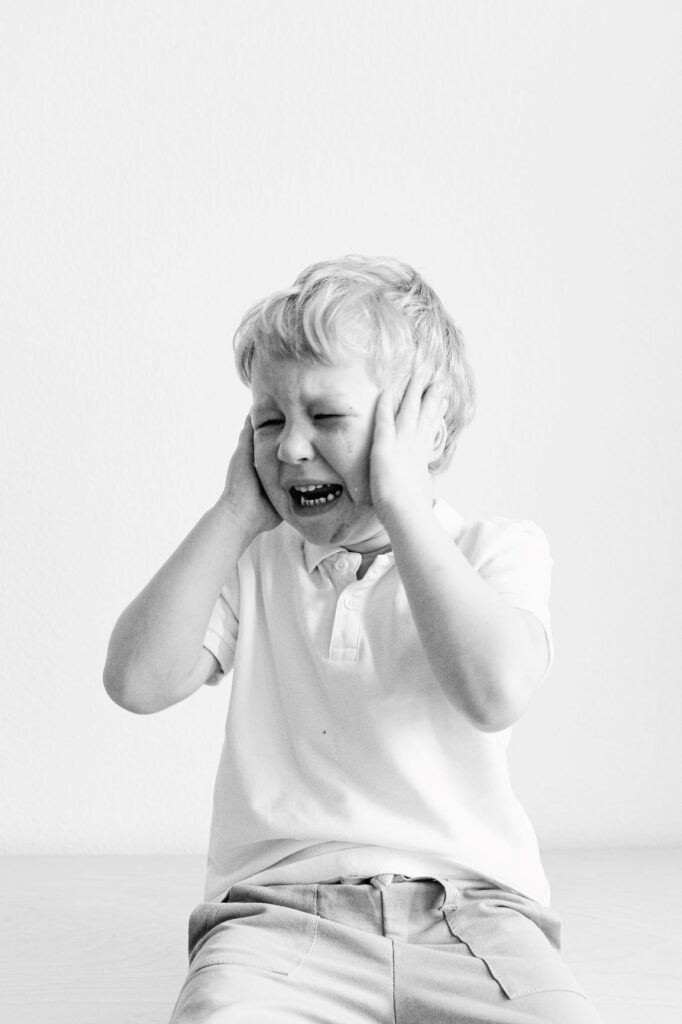
There is no doubt that as parents we are all walking our own different journeys, but there is a point in the road where our journey’s meet. We are all trying to raise our unique children in the way they deserve, trying to make the world just a little bit better in the process. When we can come together at this place in our journey as parents, the benefits to all of our children will be immeasurable.
P.S. Your spirited child is more complex, and so is your parenting journey…but don’t worry I’m here to simplify the (often) overwhelming and beautiful journey of raising a spirited child.Click here to access my free 9-page Master Guide with actionable steps to get you started on your journey to less conflict and more cooperation with your strong-willed child.
Resources
Managing a Hyperactive/Difficult Child: Parent Tips, Coping
Like many parents today and others who came before me, I have one of those children who is, in turns, remarkably sweet and intensely difficult. In a word, my child can be difficult, prone to mood changes and acting-out behavior that goes beyond what we usually expect to see in a child with typical social and emotional development.
In a word, my child can be difficult, prone to mood changes and acting-out behavior that goes beyond what we usually expect to see in a child with typical social and emotional development.
As a therapist for many years, my Achilles heel causes me to diagnose on impulse, but my experience parenting has taught me why I need to contain that impulse. The truth is that my son, soon to be six years old, deserves a chance, which means that he deserves that I not be too deterministic and paint his emotional future with any kind of a broad brushstroke. Sure, there’s a tiny part of me that is afraid that what I see in him today are merely the seeds for major emotional storms as a teenager and adult, but my job is to work hard with him, hold onto faith, and always strive to see the good and strengths in him.
To be transparent, my son is adopted, a child who came into my life almost a year and a half ago when he was four and a half years. He has many reasons to be angry, but something has surprised me over time as I’ve been exposed to many more young children and have spoken to many parents about their own experiences with their children: There are quite a few difficult biological children, too.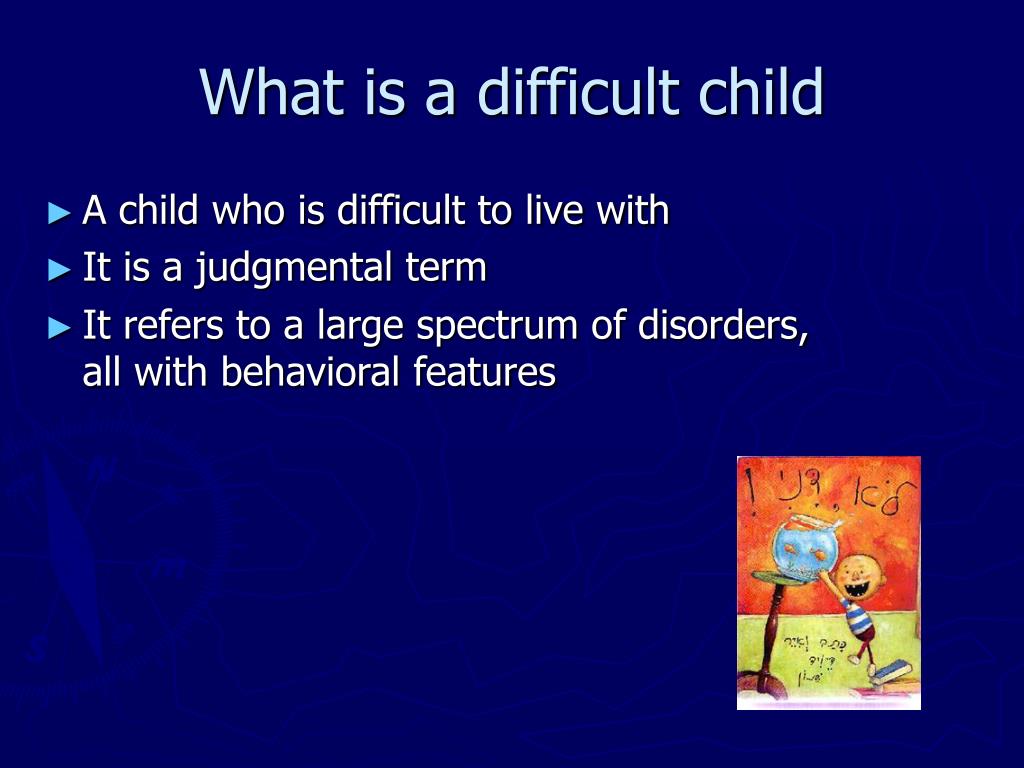 In other words, I’ve come to understand that a child who is difficult is difficult for many reasons: their own biological predispositions, their experience with profound breaks in important attachments, and so forth.
In other words, I’ve come to understand that a child who is difficult is difficult for many reasons: their own biological predispositions, their experience with profound breaks in important attachments, and so forth.
At the end of the day, we can never be completely sure what causes a child to be difficult. Many researchers have studied temperament with the belief that temperament is what makes a child, say, easy or difficult. Thomas and Chess (1977) researched this extensively and categorized children into three temperament categories including easy, difficult, and slow-to-warm-up. (Incidentally, about 10 percent of infants were difficult, although many babies studied didn't fit into any categories).
More recently, Mary K. Rothbart (2005) studied children's temperament and considered three other categories, one of which was negative affect. This category referred to the degree to which a child is shy and not easily calmed. Despite impressive attempts to understand and categorize temperament, we still don't know exactly what the most true and accurate way to describe temperament is. Yet frustrated parents everywhere — myself, included — don't need a fancy term to explain it; we simply call the child "difficult."
Yet frustrated parents everywhere — myself, included — don't need a fancy term to explain it; we simply call the child "difficult."
Difficult children aren't difficult because they're bad children or because there's something wrong with them. Difficult children are difficult because they can't regulate themselves well. Their mood gets easily thrown and they have great difficulty recovering and bouncing back. It's crucial that parents of such children know how to navigate the difficult child so that he thrives emotionally as much as possible, and that you have the best possible relationship with him so that he feels connected, accepted, and loved.
What I’ve found, above all, is that parents of difficult children need to find a way to make sense of the difficult child in order to be able to nurture him. (No, the difficult child isn’t necessarily a boy, though I am employing the male pronoun for the purposes of this article).
Mourn the challenge.
If you have a difficult child, give yourself permission to feel sad and frustrated that you have a child who is often extremely challenging to parent.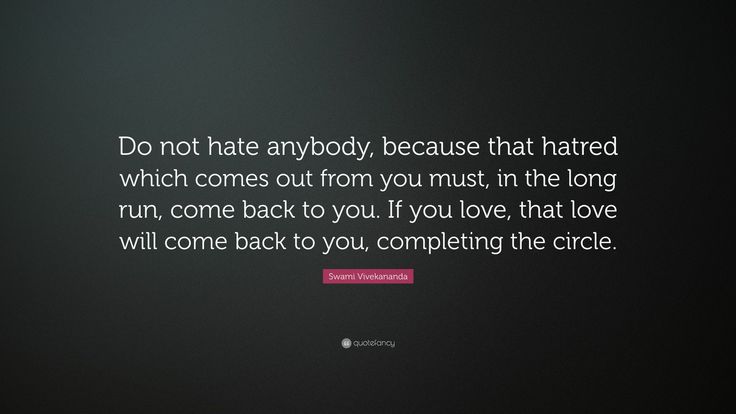 There are individuals who may deny or resist the proposal that there is such a thing as a difficult child, but I can assure you that parents with difficult children know exactly what I’m talking about. To be clear, I see the difficult child as one who has intense anger issues, a frequently negative mood or drastically shifting moods, aggressive behavior, or ongoing interpersonal conflicts with his siblings or peers.
There are individuals who may deny or resist the proposal that there is such a thing as a difficult child, but I can assure you that parents with difficult children know exactly what I’m talking about. To be clear, I see the difficult child as one who has intense anger issues, a frequently negative mood or drastically shifting moods, aggressive behavior, or ongoing interpersonal conflicts with his siblings or peers.
The good news is that the difficult child doesn’t usually stay difficult forever, provided that parents intervene in a boundaried and nurturing manner. But until the point that the child emotionally matures, parents need to mourn the loss that their experience parenting is more difficult than an awful lot of other parents. (And I’m not even getting into the experience of parenting children with major special needs here, a topic deserving of its own attention).
Make sure you have a social life outside the home.
Even when it’s not convenient or you’re too tired to be social, you need to get out of the house and socialize with your peers.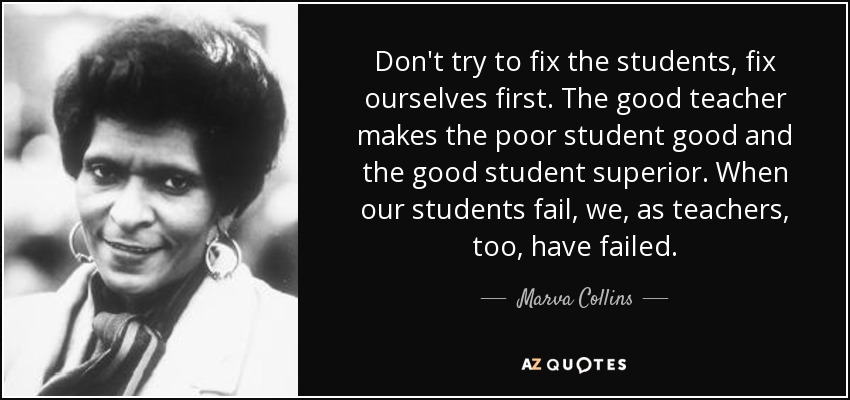 Getting out and meeting your own personal needs for affiliation with other adults is imperative to your mental health – and your ability to return to your child and be able to nurture again.
Getting out and meeting your own personal needs for affiliation with other adults is imperative to your mental health – and your ability to return to your child and be able to nurture again.
See, the hard part of having a difficult child is that the child’s emotional needs sometimes feel bottomless: No matter how hard you try, he’ll still feel unhappy or still feel that you’re not doing enough for him. My son, in particular, has anger issues, and children who have anger issues often see themselves a the victim in almost any kind of situation. I’ve learned to expect that, so it doesn’t bother me half as much as the other issue: the frequent shifts in mood and constant crying at the most unpredictable provocation.
Watch out for "do and un-doing."
Most parents do the best they can but, like me, occasionally miss the mark. I take solace in the fact that I do a lot of the "right" things. I spend a lot of time talking to my son about his moods and beliefs when they’re a little — um, off — and I take him to psychotherapy with a brilliant and kind therapist. I give him lots of praise and physical affection, and I spend a lot of one-on-one time with him reading, teaching him how to cook, and playing with his toys.
I give him lots of praise and physical affection, and I spend a lot of one-on-one time with him reading, teaching him how to cook, and playing with his toys.
Even though I’m a good parent, say, 95 percent of the time, there’s the other 5 percent where I can slip up. Invariably, and no matter how hard I try to contain my unhealthy impulses or how many great things I’ve said or done that day in parenting him, I end up saying or doing something that un-does all the good stuff.
This reminds me of a defense mechanism mental health therapists call "doing and un-doing." In other words, I do all this good stuff, but I sometimes do something else that un-does it! To prevent doing and un-doing, try to become as aware as possible of what your triggers are for frustration so that you can avoid snapping in a moment of weakness. Phone a friend for a little pep talk, or take some deep breaths in the privacy of your bedroom. We shouldn't let ourselves do something that un-does all the other good stuff we do.
Bottom Line: Parents of difficult children need to be nice themselves when it comes to analyzing their own parenting style and parenting efforts, because it’s simply not easy. Working on the few techniques I describe above can help you navigate parenting a little more easily.
Feel free to explore my book on dysfunctional relationships, Overcome Relationship Repetition Syndrome and Find the Love You Deserve.
Problem child - Psychologist
What to do if we have tried everything? How to help a difficult child?
Disobedient children, and even more so children who are "out of hand", are usually blamed. They are looking for malicious intent, vicious genes, etc. In fact, the number of “difficult” children usually includes not the “worst”, but especially sensitive and vulnerable ones. They "go off the rails" under the influence of life's stresses and difficulties, reacting to them much earlier and stronger than more stable children.
This implies that the "difficult" child needs only help - and in no case in criticism and punishment.
Reasons for persistent disobedience of a child should be sought in the depths of his psyche. It seems on the surface that he “simply does not obey”, “simply does not want to understand”, but in fact the reason is different. And, as a rule, it is emotional, not rational. Moreover, it is not realized by either the adult or the child himself.
Psychologists have identified four main causes of serious behavioral disorders in children.
First - struggle for attention. If a child does not receive the right amount of attention, which he needs so much for normal development and emotional well-being, then he finds a way to get it - disobedience. Adults keep pouring out remarks... It cannot be said that this is very pleasant, but the attention is nevertheless received. It's better than none.
The second reason is the struggle for self-affirmation against excessive parental authority and guardianship. The famous demand "I myself" of a two-year-old baby persists throughout childhood, especially aggravated in adolescents. Children are very sensitive to the infringement of this desire. But it becomes especially difficult for them when they are communicated with, mainly in the form of instructions, remarks and fears. Adults believe that this is how they instill in children the right habits, accustom them to order, prevent mistakes, and generally educate them.
The famous demand "I myself" of a two-year-old baby persists throughout childhood, especially aggravated in adolescents. Children are very sensitive to the infringement of this desire. But it becomes especially difficult for them when they are communicated with, mainly in the form of instructions, remarks and fears. Adults believe that this is how they instill in children the right habits, accustom them to order, prevent mistakes, and generally educate them.
This is necessary, but the question is HOW to do it. If remarks and advice are too frequent, orders and criticism are too harsh, and fears are too exaggerated, then the child begins to rebel. The teacher is faced with stubbornness, self-will, actions in defiance. The meaning of such behavior for the child is to defend the right to decide his own affairs, and, in general, to show that he is a person. And it does not matter that his decision is sometimes not very successful, even erroneous. But it is its own, and this is the main thing!
Third reason - desire for revenge. Children are often offended by adults. The reasons can be very different: the teacher is more attentive to the excellent students, the parents are more attentive to the younger, the parents divorce, the child was excommunicated from the family (put in the hospital, sent to the grandmother), the parents constantly quarrel, the teacher constantly makes unfair remarks, etc.
Children are often offended by adults. The reasons can be very different: the teacher is more attentive to the excellent students, the parents are more attentive to the younger, the parents divorce, the child was excommunicated from the family (put in the hospital, sent to the grandmother), the parents constantly quarrel, the teacher constantly makes unfair remarks, etc.
Many and isolated reasons for resentment: an unfulfilled promise, a harsh remark, an unfair punishment...
And again, in the depths of his soul, the child worries and even suffers, but on the surface - all the same protests, disobedience, poor progress. The meaning of “bad” behavior in this case can be expressed as follows: “You did me badly - let it be bad for you too! ..”
Finally, the fourth reason - loss of faith in one's own success. It may happen that a child experiences his troubles in one area of life, and his failures occur in a completely different one. For example, a boy may not develop relationships in the classroom, and the result will be neglected studies; otherwise, failure at school may lead to defiant behavior at home, and so on.
For example, a boy may not develop relationships in the classroom, and the result will be neglected studies; otherwise, failure at school may lead to defiant behavior at home, and so on.
This "displacement of ill-being" is due to the child's low self-esteem. Having accumulated a bitter experience of failures and criticism in his address, he generally loses self-confidence. He comes to the conclusion: "There is nothing to try, it will not work out anyway." This is in the soul, and by external behavior he shows: “I don’t care”, “And let it be bad”, “And I will be bad!” See Building Adequate Self-Esteem in a Child
Agree that the aspirations of difficult children are quite positive and natural and express a natural need for warmth and attention, a need for recognition and respect for his personality, a sense of justice, a desire for success. The trouble with "difficult" children is that, firstly, they suffer acutely from the non-fulfillment of these needs and, secondly, from attempts to make up for this lack in ways that do not make up for anything.
Why are they so "foolish"? Yes, because do not know how to do it differently! And therefore, any serious violation of the child's behavior is signal for help. By his behavior he tells us: “I feel bad! Help me!"
The task of understanding the cause, at first glance, is not an easy one. After all, different causes outwardly manifest themselves in the same way. For example, poor study can be associated with a desire to attract attention, and with an unwillingness to obey someone else's will, and with attempts to "repay" parents, and with a loss of faith in one's own strength. And yet, identifying the true cause of bad behavior is quite simple, although the method may seem very strange - needs to pay attention to their own feelings.
Look, note what emotional reaction you yourself have when the child repeatedly disobeys. For different reasons, this reaction is different. Here is such an amazing fact that experiences of adults are a kind of mirror of a child's hidden emotional problem.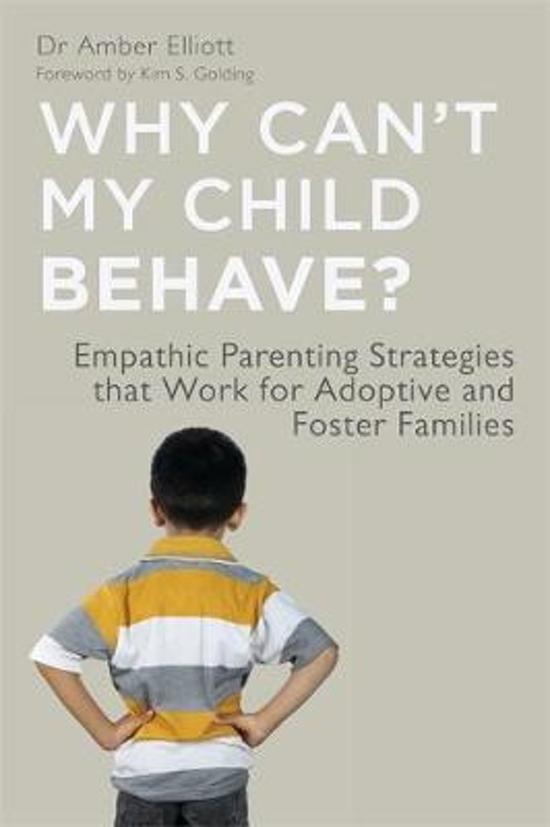
If a child fights for attention , now and then annoying with his tricks, then we have irritation .
If the background is opposition to the will of the teacher , then the latter has anger .
If the hidden reason is revenge , then we have a reciprocal feeling - resentment .
Finally, when a child deeply experiences his trouble , we find ourselves in the grip of a feeling of hopelessness , and sometimes despair.
As we can see, feelings are different, and it is quite possible to understand which one suits a particular case. What to do next?
The first and general answer to it is this - try not to react in the usual way, that is, in the way that the child already expects from you. The fact is that in such cases a vicious circle is formed. The more the adult is dissatisfied, the more the child is convinced that his efforts have reached the goal, and he resumes them with new energy. This means that our task is to stop reacting in the old ways and thereby break the vicious circle.
This means that our task is to stop reacting in the old ways and thereby break the vicious circle.
Of course, this is not easy to do. You can’t command emotions, they turn on almost automatically, especially when conflicts are old, “with experience”. And yet you can change the nature of communication! You can stop, if not an emotion, then at least everything that follows it: remarks and punishing actions. If in the next moment you manage to figure out exactly what you felt, then it will not be difficult to solve the child’s problem: with what, against what or from what he “fought”. And after that it is much easier to move from the position of influence, correction to the position of assistance, interaction. Help will vary from case to case.
If there is a struggle for attention, you need to find a way to show your child your positive attention to him. It is better to do this in relatively calm moments, when no one annoys anyone and no one is angry with anyone. For example, it can be joint activities, games, walks, well-deserved praise, etc. It is worth trying, and you will see, feel how grateful the child will respond. See →
It is worth trying, and you will see, feel how grateful the child will respond. See →
As for his usual "antics", they are best left unattended. After a while, the child will find that they do not work, and the need for them, thanks to your positive attention, will disappear.
God forbid ignoring this child at all. In this case, an asocial person will be formed in his behavior.
If the source of conflicts is the struggle for self-affirmation, then, on the contrary, control over the child's affairs should be reduced. We have already said how important it is for children to accumulate experience of their own decisions and even failures. During the transition period of your relationship, refrain from making demands that, in your experience, he is unlikely to fulfill. On the contrary, what can be called the "tuning method" helps a lot - you do not dispute the decision to which he came, but agree with him on the details and conditions for its implementation. But most of all, it will help to get rid of excessive pressure and dictatorship by understanding that the stubbornness and self-will of a child is just a form of prayer that irritates you: “Finally, let me live with my own mind. ” Remember that living someone else's life is a thankless task. See →
” Remember that living someone else's life is a thankless task. See →
If you feel resentment, then you need to ask yourself: what made the child hurt you? What is his own pain? How did you offend or constantly offend him? Having understood the reason, it is necessary, of course, to try to eliminate it. See →
The most difficult situation is for a desperate adult and a child (teenager) who has lost confidence in his abilities. The reasonable behavior of the educator in this case is to stop demanding "relying" behavior. It is worth "resetting to zero" your expectations and claims. Surely a child can do something and is even very capable of something. But for now, you have it the way it is. Find the level of tasks available to him. This is your starting point from which you can start moving forward. Do something with him together, he cannot get out of the impasse on his own. At the same time, no criticism should be allowed against him!
Look for any reason to encourage him, celebrate any, even the smallest success. Try to insure him, save him from major failures. You will notice and feel that the very first successes will inspire your child. See →
Try to insure him, save him from major failures. You will notice and feel that the very first successes will inspire your child. See →
Remember that it is useless to wait for your efforts to create peace and discipline in the family or in the classroom to succeed on the first day. The path is long and difficult, it will require a lot of patience from you. You probably noticed that the main efforts should be directed towards being aware of your negative emotions (irritation, anger, resentment, despair) and switching them to constructive actions. Yes, in a sense, you will have to change yourself. But this is the only way of education.
And the last thing that is very important to know. In the beginning, when you first try to improve the relationship, the child may intensify his bad behavior! He may not immediately believe in the sincerity of your intentions and will check them. So you have to endure this serious test.
Difficult child: 5 methods of education
10 087
For parentsQuestion to the expert
Admit that you are expecting a secret formula from this article, according to which you can easily subdue any difficult child? I hasten to share the good news. Successful algorithms do exist, but the secret ingredient of parental peace is hidden in adults themselves. Let's talk frankly about raising difficult children, shall we?
Successful algorithms do exist, but the secret ingredient of parental peace is hidden in adults themselves. Let's talk frankly about raising difficult children, shall we?
Like many of you, my boy was not born with a blue ribbon and a set of buttercreams. From the age of 10 months, he began to show his rebellious disposition, and at first I was touched by his universal knowledge that the whole world owed him. Then it seemed to me that this period should resolve itself, because it was a year old, and before the next crisis, 3 years still grow and grow. Where did the 24 months of calm go? Why is it so difficult for me with a child and I get the feeling that all this time we have a continuous crisis?
Before passing the verdict "bad behavior" and taking up education with radical methods, it would be good to understand what should be considered bad behavior. As an experiment, we will change places with the child and put ourselves in an uncomfortable position. Answer without much thought to the question: “What do I take for bad behavior in a child?” If you honestly confessed and answered: “When my child does not obey me,” you automatically fell into the trap.
The best way to get through the age crisis is to be prepared for it and help your child get through the difficult stage together
What do we really want from a child: obedience or conscious acceptance of discipline?
When I tried on the answer to my relationship with my son, I was horrified. I have confused these two fundamentally different concepts. If my child will obey everyone, not having his own opinion, will he be able to grow up as an independent, conscious and happy person?
Shouldn't work be done to change his attitude towards discipline? So that he himself knows how to set priorities in his life, form effective thinking strategies, make decisions on his own, learn to recognize feelings and calmly cope with them within the framework of the norms of society.
Having dealt with your parental position, it is easier to start working with a difficult child. I have come to the conclusion that there are only 5 effective ways to deal with bad child behavior.
1. What is "good" and what is "bad"? Understanding a child's point of view
Has your child learned to tell good from bad? Teach him yourself. No nanny or educator is more interested in this than mom and dad. We all come into this world with wide-open eyes and trustingly take the first steps into the arms of an unpredictable life. We do not know what awaits us ahead - danger or life lesson, good or bad.
Often we don't even hear our parents' warnings about what not to do. We simply live and cognize the world empirically, on the basis of our still meager life experience. My whole world turned upside down when I thought: “How can a child behave badly if he basically has no idea what bad means?”
I will dwell in more detail on the analysis of my child's feelings during the lessons of "bad deeds". I was shocked, but my child could not recognize what was bad and what was good in most cases. He sincerely did not understand why I first asked him not to rattle pots, explained that it was impossible to beat other children, almost with dancing persuaded him to return from a walk to sleep when he wanted to take a walk more.
In such situations, he did not think about what is good and bad, but was guided by the criteria "interesting - not interesting", "safe or not", "I want - I do not want". And when I once again suppressed a flash of anger because my son deliberately poured a bowl of soup on the floor, I asked myself the question: “Why am I so angry?” Didn't I make sure to finish my unloved borscht?
Meanwhile, my son Laurus actively gave signs of disagreement. His head-shaking and despondent expression tried his best to convey this, but I stubbornly ignored the protest. After all, it is convenient to feed the child properly before a walk so that he does not fray his nerves with sudden hunger. After thinking about the situation, I cooled down and gave the rebel a rag: “Wipe after yourself.”
2. Reach mutual agreement on good and bad
This item is closely related to the previous cause of child misbehavior, but differs in that the child sincerely disagrees with the adult's demands. Well, he does not understand that scattering toys and living in chaos is bad. For him, this is a natural environment in which he is fun and educational.
Well, he does not understand that scattering toys and living in chaos is bad. For him, this is a natural environment in which he is fun and educational.
For a long time I was at a loss as to how to instill in a child a love of discipline. After all, you have to learn to clean up after yourself. But instead of obedience, I met desperate resistance or complete disregard for requests. The more I insisted, the more my son moved away from me. “And this little button, which is not even two years old, stamps its foot and still swings at its own mother, when it only asked to remove it, seasoning the request with a pinch of blackmail: “Otherwise we won’t go for a walk,” I thought, choking with irritation.
And this is what I longed for when I was a mother, so that my child could express his opinion openly and freely. Have I played with excessive democracy? The answer came after some time, when I rethought the situation and began to take the side of my son.
Once again I asked to put the toys away and felt tension between us. I suggested to him: "Let's ask the tractor to help us clean up?" His son's eyes lit up, and he joyfully exclaimed: "Yes!" I realized that true love for discipline, and not blind obedience, cannot be brought up through denial and rejection. It is really important for a child to feel that you understand him.
I suggested to him: "Let's ask the tractor to help us clean up?" His son's eyes lit up, and he joyfully exclaimed: "Yes!" I realized that true love for discipline, and not blind obedience, cannot be brought up through denial and rejection. It is really important for a child to feel that you understand him.
3. Through "bad behavior" the child learns - let him form new qualities
It is so inherent in nature that a person needs to acquire strong-willed qualities in order to survive. If you like, it's an evolution. There would be no one to continue the human race if people did not have some negative qualities. The real discovery for me was that "bad behavior" helps the child develop new qualities:
● If the child is stubborn and does not want to follow your instructions, he learns to defend his own opinion. Can you imagine what will happen if we constantly fight off this natural need from a small person?
What to do? Accept the child's desire to be a person.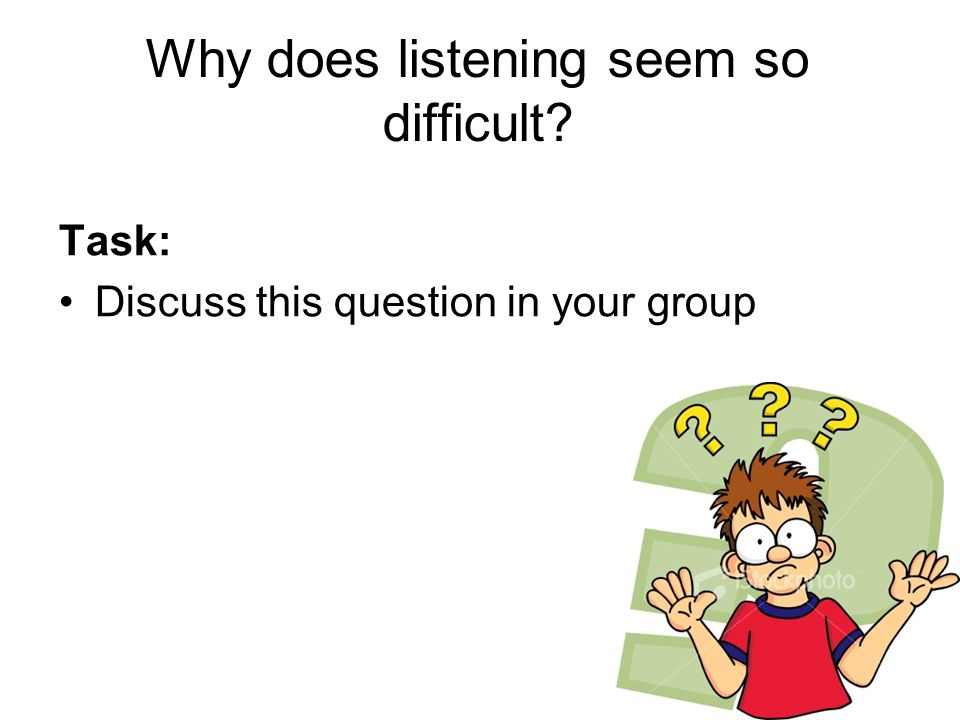 Show that his opinion really matters. For example, when I started taking Lavr to kindergarten, he kept saying that we should go to the park. As soon as we approached the door, he protested heart-rendingly and insisted that we urgently needed to walk. Every time I tried to explain that no one walks in the park so early. The son was instantly offended and fell into hysterics. One day I decided to really take him to the park and show him that I am not deceiving him. When he saw that there was nothing for him to do at such an early hour, he calmed down. Hungry and called for breakfast in the garden.
Show that his opinion really matters. For example, when I started taking Lavr to kindergarten, he kept saying that we should go to the park. As soon as we approached the door, he protested heart-rendingly and insisted that we urgently needed to walk. Every time I tried to explain that no one walks in the park so early. The son was instantly offended and fell into hysterics. One day I decided to really take him to the park and show him that I am not deceiving him. When he saw that there was nothing for him to do at such an early hour, he calmed down. Hungry and called for breakfast in the garden.
● If a child devalues your judgments, says that you do not understand him, he learns to make sense of what is happening. If he protests for any reason and does not compromise, he trains the will and skills to overcome obstacles.
How to be? You just need to accept the fact that you are a kind of simulator for the child. And, thank God, he trains on the person who loves him the most. Otherwise, who else would endure it? It is important to help your child learn to identify negative emotions and deal with them appropriately. “Lavrusha, I know you're angry with me because I won't give you an orange. You called me bad, not because I'm evil, but because I forbade you to eat it. Your skin may become red and itchy. You can cry, but I still won't give you an orange."
Otherwise, who else would endure it? It is important to help your child learn to identify negative emotions and deal with them appropriately. “Lavrusha, I know you're angry with me because I won't give you an orange. You called me bad, not because I'm evil, but because I forbade you to eat it. Your skin may become red and itchy. You can cry, but I still won't give you an orange."
It is important for a child to understand his or her emotions as early as possible and to learn how to deal with them. Recall the cartoon "Puzzle". There, five emotions live a full life, and in addition to Joy, a person has a whole set of not very good (at first glance) companions: Sadness, Fear, Anger and Disgust. Watch this useful cartoon and make sure that the exclusion of "bad and unnecessary" emotions from a person's life leads to the oppression of the whole organism.
● If a child turns into a tyrant, imposes an opinion, indicates where to go and what to do, he acquires the skill of self-respect. Take a closer look at yourself, perhaps at some point you devalue the child, his thoughts and desires.
Take a closer look at yourself, perhaps at some point you devalue the child, his thoughts and desires.
You can't count all the examples of bad behavior, but you definitely shouldn't treat them negatively. I do not at all call for indulging such manifestations, let alone inaction, but it is necessary to show understanding, tolerance and even ingenuity in resolving conflicts.
4. A child adapts to natural age-related crises - help him cross a difficult stage
A crisis is a time of transition, a turning point with an unpredictable outcome. An age crisis is an integral and normal stage in the formation and development of a person. They happen in the life of every child during the neonatal period, at 1 year, 3 years, 7 years, puberty and adulthood.
For some, the crisis stages shift a year later or earlier, depending on the character, temperament and pace of development of the child. The best way to survive is to be prepared for it and help your child get through the difficult phase together. You don't have to say "no" to everything. The child should know that there are inviolable rules in the family that everyone must follow.
You don't have to say "no" to everything. The child should know that there are inviolable rules in the family that everyone must follow.
It's easy to break a child, it's more difficult to learn to negotiate. Therefore, it is necessary to master new models of behavior not only for children, but also for parents. I stopped keeping a table of calculations, who will “bend” whom, when I realized that by nature my child can become much stronger and cooler than me.
Once I read a life hack by Mikhail Labkovsky and stopped competing: “He is your child. You should be glad that he is stronger than you. You don't have to measure your character. Come and take him in your arms. If you remember this rule, you will be able to grow an unbroken, strong personality with a strong inner core. Such people know what they are worth, value and respect themselves.
5. The child is trying to compensate for unsatisfied needs
The list of basic needs of the child is not far behind the generally accepted hierarchy of needs of an adult. The well-known works of Abraham Maslow apply even to the smallest members of society. For ease of perception, I comprehended in my own way and combined the needs into 3 groups. These needs an adult cannot ignore:
The well-known works of Abraham Maslow apply even to the smallest members of society. For ease of perception, I comprehended in my own way and combined the needs into 3 groups. These needs an adult cannot ignore:
● Physiological needs. This source of “bad behavior” is easily identified and can be linked to poor bedtime, hunger, fatigue, and other unmet needs. Often it is enough to understand the situation and provide the child with the correct mode. In this case, the child's behavior is corrected in a fairly short time. My son at the age of 1 year and 2 months had a hard second bedtime in the afternoon. He woke up with a terrible hysteria, over the reasons for which I broke my head for some time. As soon as I shifted my bedtime to an earlier period, the disturbing symptoms disappeared.
● Need for security, love and belonging. Such different needs, but sometimes they are closely intertwined, for example, when we send children to kindergarten. Without adaptation, they become vulnerable on several fronts at once, which they try to talk about with the help of whims and bad behavior. Physical contact with the child, gentle hugs and a quiet, trusting voice help well. I unconditionally spent as much time as the child needed to understand that his mother loves him and will definitely come for him.
Physical contact with the child, gentle hugs and a quiet, trusting voice help well. I unconditionally spent as much time as the child needed to understand that his mother loves him and will definitely come for him.
● The need for respect, recognition and self-realization. I remember every moment when adults treated me unfairly. A small child is no different, only he still does not know how, due to his age, to explain and choose the right words, which he compensates with rebellion.
The main cause of a child's bad behavior is you yourself
It's time to collect stones. "Who do we have such an ill-bred child?" - perhaps the most ridiculous question of a parent. A child is a reflection of the family: what you have is what he has. There is only one effective way to raise an emotionally and mentally healthy child - to become such a person yourself.
Growing up as a good child is easier in a happy and successful family. Therefore, it is so important to understand the views of the child, to come to mutual agreement in understanding “good” and “bad”. Be a reliable support for your child, especially during difficult periods. Without your support, it will be very difficult for him to adapt and overcome natural age crises.
Be a reliable support for your child, especially during difficult periods. Without your support, it will be very difficult for him to adapt and overcome natural age crises.
Through "bad behavior" the child learns - let him form new qualities. Giving a child unconditional love is a great art. We are not taught this anywhere, but now there are so many opportunities for self-knowledge and development. Learn the basics of child psychology, always be a role model for him, regardless of mood, weather and problems at work.
Due to age, the child is not able to satisfy needs independently, the main of which is the need for love. What would happen if we could all love children just like that, without conditions and agreements, without division into good and bad?
About the author
Margarita Makarova is the creator of the SOS Mommy school of happy motherhood and motivational marathons for women. Her Instagram (an extremist organization banned in Russia).